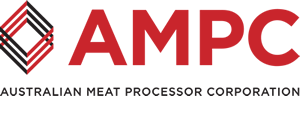
There is no economic justification for a tightening of competition regulation in the Australian beef processing sector, an independent study into the industry has found.
The independent research was conducted by economic and policy consultants SG Heilbron as part of the Australian Competition and Consumer Commission’s market study on the cattle and beef industry.
The report’s author, Dr Selwyn Heilbron, said competition concerns by some livestock producers and organisations incorrectly link levels of concentration in the industry with abnormally high margins. He said however, these concerns do not reflect the reality of how processors operate and compete.
The study found that the livestock production sector involves many beef producers of different size, capacity and profitability. But differences in producer profitability reflect the costs rather than prices received for cattle. It said that processors are all price takers on the sell side in a highly competitive international market. It is the international market that drives the prices that processors can afford to pay for cattle since exports account for around three quarters of output.
“Concentration in a market does not equate to anti-competitive conduct,” Dr Heilbron said. “Moreover, beef processing in Australia is far less concentrated than in the United States, our major competitor.”
“The dynamics of the Australian cattle industry and its supply chain are driven by supply and demand. There is significant competition for livestock from processors/buyers and there is no evidence of market power on the buy side.”
“Where competition in the industry concerned is strong, there is no justification for using competition policy to hinder economic forces and limit the potential gains in efficiency and competitiveness of the industry as a whole,” Dr Heilbron said.
The $18 billion beef processing industry is Australia’s largest food product manufacturing industry and plays a vital role in the national and regional economy, generating approximately 105,000 jobs and $6.7 billion in household income.
Dr Heilbron said it was important to highlight the socioeconomic impact and significance of the beef processing industry to Australia.
“The unintended consequences of policies applied to one part of the industry will flow on to others. In particular, the economic fate of processors is intimately tied to that of livestock producers, and vice versa.”
“Policy aimed at advancing the development of the industry should focus on minimising uneconomic regulatory cost imposts that adversely affect investment and competitiveness. More broadly, policy should focus on addressing the underlying cost efficiency challenges faced by small producers in agriculture,” Dr Heilbron said.
Peter Noble, Chairman of the Australian Meat Processing Corporation, which commissioned the research said that he supported a competition policy that accounted for market unpredictability and the cost pressures on each supply chain participant.
“Industry concerns have recently focused on the level of competition in the system which is missing the point,” he said. “Meat processors cannot control the price at which they can purchase livestock, and their costs are well above their international competitors. To remain profitable they need to innovate and develop an operating model that delivers economies of scale.”
“Meat processing is risky and profitability across the supply chain is highly variable,” Mr Noble said. “Processors have been leading the way with innovation in order to counter economic pressures and enhance processing technologies while at the same time driving increased demand for high quality Australian beef internationally.”



